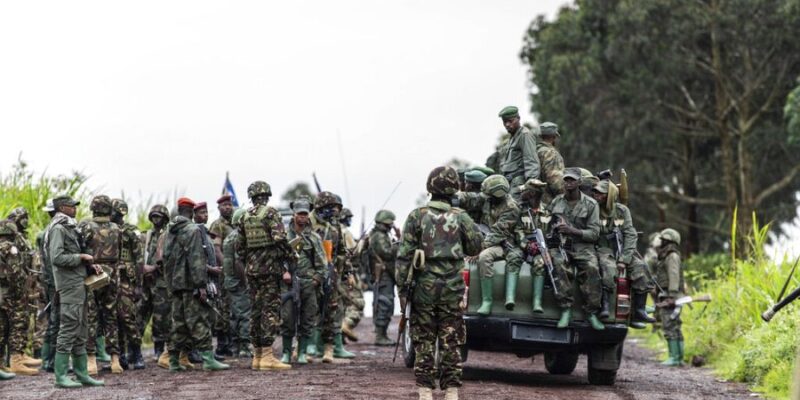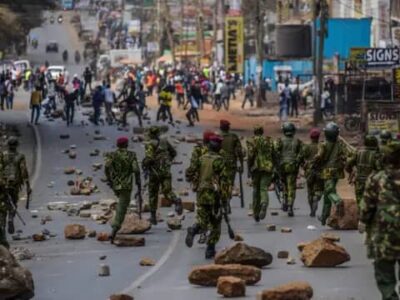Two and a half years of fierce fighting between factions have displaced an estimated 5.7 million people across the provinces of North Kivu, South Kivu, and Ituri in the Democratic Republic of Congo (DRC).
Brokered by Angola, the August 4, 2024 ceasefire came as a two-week humanitarian truce between M23 and Congolese forces in North Kivu expired the night before.
It was not specified which parties had agreed to the deal, nor how long it would last, according to a report by RFI news.
United Nations Spokesman, Stephane Dujarric, expressed hope that the ceasefire would help bring about a “de-escalation of tensions between the DRC and Rwanda” and enable the safe return of internally displaced people.
France, Belgium, the European Union and the United States also welcomed the news.
Read more: Rebel group reportedly takes control of Rubaya, key mining town in DR Congo
However, given that previous truces had never lasted more than a few weeks, observers say clashes are likely to continue.
Locals fear that negotiated pauses in fighting offer armed factions the chance to regroup.
“Agreements are often violated by the parties to the conflict because the M23 and Rwandan army are continuing to strengthen their positions,” said Georges Katsongo, president of a civil society group in North Kivu’s Lubero region.
The violence in North Kivu is driven by complex rivalries along ethnic, religious, and political lines, with neighboring Rwanda and Uganda accused of backing rebel groups to expand their influence and gain access to valuable resources in the region. Historical animosities dating back to the Rwandan genocide and earlier regional disputes continue to fuel mutual distrust.
About six million people have reportedly been killed by fighting in the region since 1996, making it one of the deadliest conflicts in global history.
A report commissioned by the UN Security Council found that between 3,000 to 4,000 Rwandan soldiers were fighting alongside the M23 rebels in North Kivu, with Kigali exercising “de facto” control over the group’s operations.
Until the end of 2023, Rwandan authorities had denied their troops were supporting the mainly Tutsi M23, but since then Kigali has stopped commenting directly on such accusations.
WARNING! All rights reserved. This material, and other digital content on this website, may not be reproduced, published, broadcast, rewritten or redistributed in whole or in part without prior express permission from ZAMBIA MONITOR.












Comments